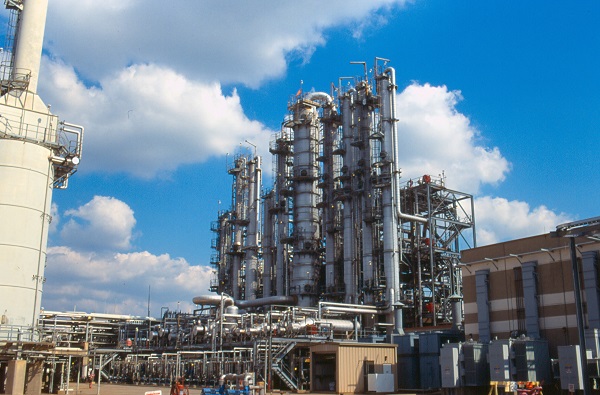
Chevron Phillips Chemical Co. said yesterday it reached a final investment decision to expand low-viscosity polyalphaolefin capacity at its Cedar Bayou plant in Baytown, Texas, by 10,000 metric tons per year.
The company said the expansion will allow it to meet increasing demand for high-quality base stocks for automotive and industrial lubricants, as demand for higher energy efficiency and high-performance lubricants continue to grow. The project also improves safety and efficiencies while reducing waste generation for the PAO unit.
Feedstocks for the project will come from Chevron Phillips Chemicals recent 100,000 t/y normal alpha olefins expansion at the Cedar Bayou plant.
Stephen B. Ames of SBA Consulting, Pepper Pike, Ohio, noted that supply of decene and dodecene – the lengths of NAOs most frequently used to make PAOs – had been tight, and thus that the NAO expansion in Cedar Bayou helps make it possible to increase PAO production.
What is somewhat curious about CP Chems announcement is the rather lengthy period of construction, he told Lube Report. It does not appear to be a debottlenecking but rather a new parallel oligomerization train. If so, I would be suspicious that it is limited to only 10,000 tons per year capacity, although it may be operated at this lesser level during the initial start-up as dictated by the recent increase in feedstock availability.
Ames pointed out that Ineos has also indicated it is studying the construction of another low-viscosity train at its La Porte, Texas, facility following a linear alpha olefin (LAO) expansion, and that the capacity of its new PAO train could be 80,000 t/y.
Both CP Chem and Ineos had previously been reticent to expand low-viscosity production with the possibility of additional GTL and Group III+ base oils coming to market toward the end of the decade, Ames said. However, those projects – Sasol GTL at Westlake, Louisiana, and HollyFrontier’s Group III+ plant at Woods Cross, Utah – have been indefinitely postponed or cancelled. Both would have provided low-cost competition to PAO as correction fluids in new 0W-xx and 5W-xx low-viscosity engine oils.
Construction at Cedar Bayou will begin in April this year, with completion and startup expected by mid-2017. The expansion will support up to 135 construction and engineering jobs.

Photos: Chevron Phillips Chemical
Miles Oberton, global PAO manager at Chevron Phillips Chemical, gave a presentation at the December 2014 ICIS Pan American Conference in New Jersey that outlined the companys PAO capacities.
At the time, Oberton said its Cedar Bayou low-viscosity PAO capacity was 48,000 t/y, and would become 58,000 t/y when the expansion was completed. According to his presentation, the company also had 9,000 t/y of high-viscosity PAO toll-manufactured for it in Pasadena, Texas. The company also has 63,000 t/y of low-viscosity PAO capacity at a plant in Beringen, Belgium.
PAO molecules are made by assembling NAOs into longer chains. Chemists can use decene (chains of 10 alpha olefins), octane (chains of eight) or dodecene (chains of 12) or a blend of such NAOs to reach the molecularweights and performance targets their customers want.
PAOs provide maximum protection over a wide temperature range; low volatility and thermal stability that are beneficial for achieving extended drain intervals; and oxidative and hydrolytic stability over a wide temperature range, Oberton told Lube Report. There continues to be growth in the demand for low viscosity PAOs.
Chevron Phillips Chemical markets PAOs under the brand name Synfluid, which includes both high- and low-viscosity PAOs. PAOs are used for a variety of automotive and industrial applications, including engine oils, gear oils and greases.
Chevron and Phillips 66 each own 50 percent of Chevron Phillips Chemical.